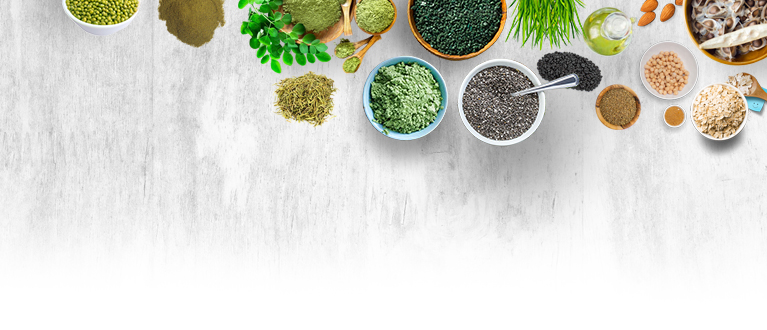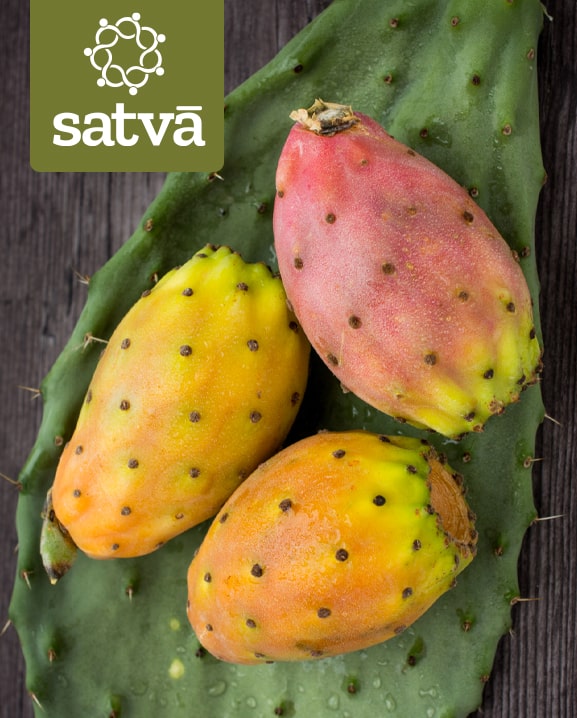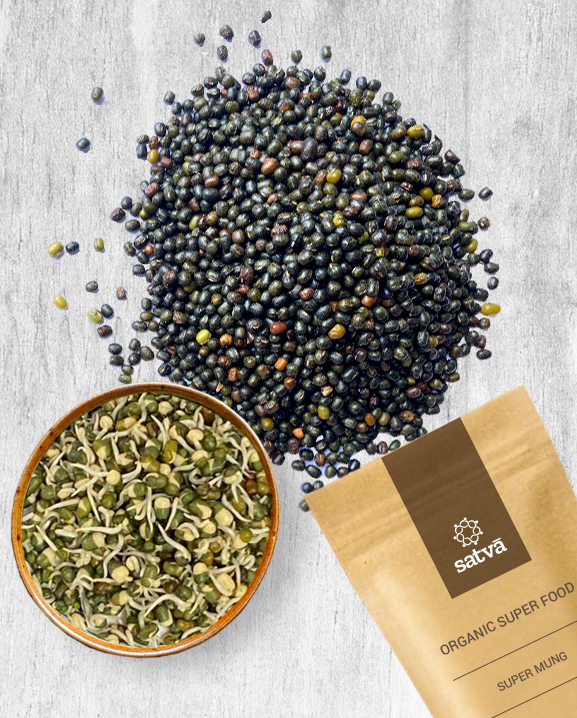Super Foods

Super Foods

Rosemary
Rich source of antioxidants and anti-inflammatory compounds, rosemary help boost the immune system and also, improve blood circulation.
A cognitive stimulant that help improve memory, boost alertness, intelligence, and focus.
AROMATHERAPY: improving mood, clearing the mind, and relieving stress in those with chronic anxiety or stress hormone imbalances.
OIL: Promote hair growth, slow graying, treat dandruff and dry scalp.
POWDER: Aid in digestion, heartburn, liver and gallbladder complaints, and loss of appetite.
Black Gram
Urad, Vigna mungo, the black gram, minapa pappu, mungo bean or black matpe bean is a bean grown in the South Asia. It is full of iron, folic acid, calcium, magnesium and potassium and low glycemic index.
FOOD/POWDER: Improved Sexual health for men. Being rich in Folate, Zinc and antioxidants perceived sperm protecting and an aphrodisiac for men, it has been traditionally consumed by men to increase fertility. It also increases Kapha and Pitta and is recommended for men suffering from erectile dysfunction, low sperm count and motility.
OIL: help relieve severe joint pains or rheumatoid arthritis, reduces inflammation, and ward off lice on the scalp.

Tomato
Tomatoes are one of the most commonly consumed fruit. It is a major dietary source of the antioxidant lycopene, that has been linked to many health benefits, including, but not limited to, reduced risk of heart disease, better skin health and cancer.
Tomatoes are 95% water, are a great source of vitamin C, potassium, folate, and vitamin K.
Lycopene is mostly present in the skin of ripened tomatoes and our diet doesn’t allow us to consume lycopene in amounts that will be beneficial to our health. Moreover, commercial ripening results in significant decline in their nutritious value thus need to consume lycopene as a supplement.

Black Pepper
Black Pepper is one of the most widely used spices worldwide that gives a nice spicy flavor and aroma.
Black Pepper is rich in piperine, a powerful antioxidant itself and also aids in absorption of curcumin. Piperine has anti-inflamatory, neurotonic properties, also helps maintain blood glucose level as well as improves cardiac health.
Though tremendous benefits as well as an amazing spice, the consumption of black pepper is limited due to its spicy taste. Thus for health effects of black pepper, it is advised to consume piperine as curcumin + piperine supplements.

Beetroot
Beetroot is a vegetable commonly known as red beet, table beet, garden beet, or just beet. People consume both beet root raw or cooked as well as beet leaves.
It is a great source of dietary fiber, Vitamin B9, manganese, potassium, iron, and vitamin C. It has high content of Betanin, inorganic nitrates and Vulgaxanthin that are related to its beneficial effects. Inorganic nitrates present in beetroot are associated with reduced blood pressure as well as enhance physical performance, particularly during high-intensity endurance exercise.

Moringa
Moringa commonly known in India as the drumstick tree, has been used for centuries for its medicinal properties and health benefits. It is also known as the miracle tree, the ben oil tree, or the horseradish tree. It also has antifungal, antiviral, antidepressant, and anti-inflammatory properties.
Across the world, people consume both the drumstick fruit as well as the tree leaves for different health benefits.
Moringa seed oil can be applied to hair for its protecting effect against free radicals and improves health of the hair.
Drumsticks are traditionally consumed as curry in India that has significant benefits on heart health and digestion due to high fiber content.

Turmeric
Turmeric commonly known as ‘haldi’ is one of the most versatile and widely used spices in the world. Ancient people used turmeric in food, in herbal medicines as well as color.
Curcumin is the main bio-active ingredient in turmeric that has powerful anti-inflammatory effects and is a very strong antioxidant. Not only curcumin is a natural anti-inflammatory molecule, it boosts brain-derived neurotrophic factor, is linked to improved brain function.
The curcumin content of turmeric is not being high, < 3% by weight, large quantities needs to be consumed for medicinal effects thus most supplements sell turmeric extract or curcumin. Black Pepper is added to potentiate bio-availibility of curcumin.
Turmeric is used as spices in food, in creams or paste for cosmetic use, or just added to drinks for its health benefits.

Papaya
The papaya is a tasty as well as incredibly healthy tropical fruit widely consumed in India. Papaya can be eaten unriped, cooked or consumed ripened papaya directly. For thousands of years people used papaya to tenderize meat due to presence of enzyme papain.
Papaya is rich in vitamins C and A, fiber and antioxidants known as carotenoids — lycopene. Lycopene reduces antioxidant stress due to its ability to remove excess iron, which is known to produce free radicals.
Though most people consumes papaya for its health benefits, lately lycopene supplements have been increasingly consumed.

Silymarin
Silymarin is a standardized milk thistle seed, a flowering herb native to Mediterranean, extract containing a mixture of Flavonolignans (Silybum Marianum). It contains a mixture of flavonolignans consisting of silibinin, isosilibinin, silychristin, silidianin, and others.
It is widely used for the treatment of Chronic Liver Disease and Cirrhosis of the liver.

Spirulina
Spirulina or Arthrospira belongs to family of single-celled microbes that are often referred to as blue-green algae. Though being used since ancient times, it became popular when when it was successfully used by NASA as a dietary supplement for astronauts on space missions.
More than 50% of spirulina is protein. The quality of the protein in spirulina is considered excellent having all the essential amino acids. It is extremely rich in Vitamin B1 (thiamine), Vitamin B2 (riboflavin), Vitamin B3 (niacin), Copper and Iron.
It also contains decent amounts of magnesium, potassium and manganese and small amounts of almost every other nutrient that you need.
C-Phycocyanin is the main active compound in spirulina. It has powerful antioxidant and anti-inflammatory properties.
Spirulina is generally consumed as dietary supplement tablets due to its unique taste but more healthy individuals add it to their smoothie or protein shake.

Green tea
Green tea is known as one of the healthiest antioxidant rich beverages we consume.
It’s loaded with polyphenols, epigallocatechin-3-gallate (EGCG), that have many health benefits, which may include:
- improved brain function
- fat loss
- protecting against cancer
- lowering the risk of heart disease
Green tea leaves are traditionally brewed as a tea but lately Matcha tea is becoming more famous for better benefits.
Matcha powder can be used to bake different products, make smoothie.

Chlorella
Chlorella is a single-celled, green freshwater algae.
Chlorella contains several compounds that are considered antioxidants, including chlorophyll, vitamin C, beta-carotene, lycopene and lutein. Chlorella’s antioxidant content may provide some protection against chronic disease, but more human studies are needed to confirm this.
Chlorella has 50–60% protein. It is a complete protein source containing all nine essential amino acids
Chlorella is an excellent source of iron and vitamin C in Chlorella helps absorb iron.
Chlorella may help the body detox by binding to heavy metals and other toxins.
Though Chlorella is extremely nutritious the unique flavour makes it harder to be popular widely but nutrition enthusiasts consume it with smoothie or protein shake.

Aloe Vera
Humans have used Aloe Vera for thousands of years in medicinal remedies.
Aloe vera is a thick, short-stemmed plant that stores water, ‘gel’, in its leaves. It is best known for treating skin injuries, but it also has several other uses that could potentially benefit health.
Aloe Vera can be used both topically as well as oral consumption.
The gel contains most of the beneficial bioactive compounds in the plant, including vitamins, minerals, amino acids, and polyphenols antioxidants. Aloe vera has antibacterial, antiviral, and antiseptic properties.
Aloe Vera has aloin, or barbaloin, which has laxative effects aiding to reduce constipation.

Wheat Grass
Wheatgrass, known as complete nourishment, is a freshly sprouted first leaves of the common wheat plant that has super potent health food with amazing benefits.
Wheatgrass has antioxidant, antibacterial, and anti-inflammatory properties. It is rich in: antioxidants including glutathione, iron, calcium, digestive enzymes, magnesium, phytonutrients, vitamins A, C, E, K, and B complex, chlorophyll and, proteins - 17 amino acids.
Multiple studies have found that antioxidants present in wheatgrass may help one protect against several conditions, such as heart disease, cancer, arthritis and neurodegenerative diseases.

Ginger
Ginger is among the healthiest and delicious spices on earth. Ginger has been consumed in almost all Indian household either as spices or in homemade remedies.
The unique fragrance and flavor of ginger come from its natural oils, most commonly Gingerol that is the main bioactive compound. Gingerol is attributed for much of ginger’s medicinal properties.
Ginger can be used fresh, dried, powdered, or as an oil or juice for different purposes.
It’s sometimes also added to processed foods and cosmetics.

Ashwagandha
For centuries, humans have used the roots and the orange-red fruit of ashwagandha, also known as Indian ginseng or winter cherry, for medicinal purposes.
In Ayurvedic medicine, ashwagandha is considered a Rasayana or adaptogen, meaning that it helps maintain youth, by managing stress, both mentally and physically.
Ashwagandha is scientifically proven to boost brain function, lower blood sugar and cortisol levels, and help fight symptoms of anxiety and depression.
Ashwagandha contains bio-active compoing withanolides, that is shown to fight inflammation and tumor growth. Several studies has proven Ashwagandha reduces blood sugar in both healthy and diabetes patients.
Consuming ashwagandha as a supplement tablet or as an additive to smoothie or juice helps take sufficient amount for its benefit.

Shatavari
Shatavari also known as satavari, satavar, or Asparagus racemosus (A. racemosus), has been used for centuries in Indian Ayurvedic medicine. Like Ashwagandha, Shatavari is considered a Rasayana or adaptogen, meaning that it helps maintain youth, by managing stress, both mentally and physically.
Shatavari, is said to promote fertility and have a range of health benefits, particularly for the female reproductive system.
Shatavari contains galactagogue, that promotes breast milk production and thus it is widely used in nursing mothers.
Shatavari is a popular supplement, taken orally as a tablet, a powder, or liquid essence that Indians use to promote female fertility.

Dandelion
Dandelion considered to be herb, has medicinal purposes. People have been using all parts of the plant for centuries, the leaves, stem, flower, and root for medicinal purposes.
Dandelion greens are an excellent source of vitamins A, C K, E, folate and small amounts of other B vitamins. It also has a substantial amount of several minerals, including iron, calcium, magnesium and potassium. The root of the dandelion is rich in the carbohydrate inulin, which is a type of soluble fiber found in plants that supports the growth and maintenance of a healthy bacterial flora in your intestinal tract.
Antioxidant properties of Dandelion is attributed to being a rich source of beta-carotene and other polyphenolic compounds. The two bioactive compounds in dandelion, Chicoric and chlorogenic acid, can aid in controlling blood sugar level.
Dandelion greens are consumed as food, cooked or uncooked, while flowers and roots are mainly used to in tea.

Prickley pear cactus
Prickly pear cactus, also called nopal, Indian fig, are flat-stemmed spiny cacti generally grown across dry India, Mexico. It has been consumed for medicinal benefits across wide region.
In India, people consume it to boost their hemoglobin level. In Mexico it is used for treatments for wounds and inflammation of the digestive and urinary tracts.
It contains a range of phytochemicals, such as polyphenols, dietary minerals and betalains. It aids in the prevention or slow down of diabetes, obesity, metabolic syndrome, cardiovascular disease, and some cancers. It is significantly rich in Vitamin C, Magnesium and dietary fiber.
People consume its fruit as well as stem in various forms including food, juices.

Black Wheat
Urad, Vigna mungo, the black gram, minapa pappu, mungo bean or black matpe bean is a bean grown in the South Asia. It is full of iron, folic acid, calcium, magnesium and potassium and low glycemic index.
FOOD/POWDER: Improved Sexual health for men. Being rich in Folate, Zinc and antioxidants perceived sperm protecting and an aphrodisiac for men, it has been traditionally consumed by men to increase fertility. It also increases Kapha and Pitta and is recommended for men suffering from erectile dysfunction, low sperm count and motility.
OIL: help relieve severe joint pains or rheumatoid arthritis, reduces inflammation, and ward off lice on the scalp.

This is Modal Title
Enter content here. Lorem ipsum dolor sit amet, consectetur adipiscing elit. Ut elit tellus, luctus nec ullamcorper mattis, pulvinar dapibus leo. Lorem ipsum dolor sit amet, consectetur adipiscing elit. Ut elit tellus, luctus nec ullamcorper mattis, pulvinar dapibus leo.

Black Gram
Urad, Vigna mungo, the black gram, minapa pappu, mungo bean or black matpe bean is a bean grown in the South Asia. It is full of iron, folic acid, calcium, magnesium and potassium and low glycemic index.
FOOD/POWDER: Improved Sexual health for men. Being rich in Folate, Zinc and antioxidants perceived sperm protecting and an aphrodisiac for men, it has been traditionally consumed by men to increase fertility. It also increases Kapha and Pitta and is recommended for men suffering from erectile dysfunction, low sperm count and motility.
OIL: help relieve severe joint pains or rheumatoid arthritis, reduces inflammation, and ward off lice on the scalp.

Rosemary
Rich source of antioxidants and anti-inflammatory compounds, rosemary help boost the immune system and also, improve blood circulation.
A cognitive stimulant that help improve memory, boost alertness, intelligence, and focus.
AROMATHERAPY: improving mood, clearing the mind, and relieving stress in those with chronic anxiety or stress hormone imbalances.
OIL: Promote hair growth, slow graying, treat dandruff and dry scalp.
POWDER: Aid in digestion, heartburn, liver and gallbladder complaints, and loss of appetite.













